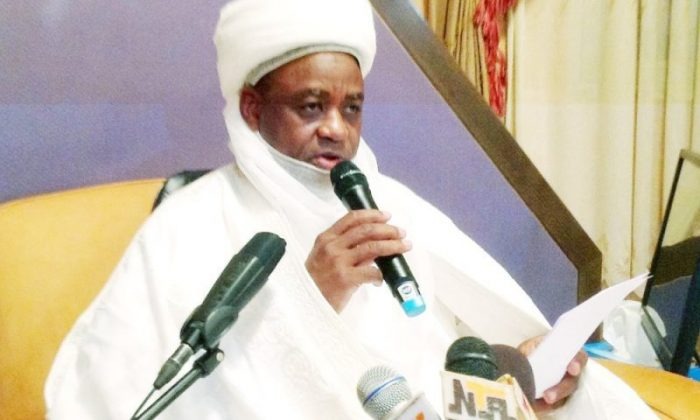The Sultan of Sokoto, Muhammad Sa’ad Abubakar III, has called for deeper interfaith collaboration to address Nigeria’s developmental challenges.
Abubakar said this at a two-day engagement with religious leaders from Northern Nigeria in Abuja.
The engagement was put together by the Sultan Foundation for Peace and Development with support from the National Primary Health Care Development Agency (NPHCDA).
The Sultan stressed the importance of working across religious lines for the country’s progress, stating that both Christians and Muslims must unite to ensure peace, security, and health for all Nigerians.
He said the foundation was aimed at fostering development.
“This foundation belongs to all Nigerian Muslims, and we work with Christians and other faiths to address issues affecting our country,” he said.
The Sultan highlighted past successes in collaboration with global partners like the Bill and Melinda Gates Foundation in the fight against polio, crediting joint efforts for Nigeria’s certification as polio-free.
Reflecting on the broader issues facing Nigeria, including security and healthcare, the Sultan said without these two critical pillars, other aspects of national progress were hindered.
He urged religious leaders to use their influence to promote vaccination and improve public health education.
According to the Sultan, it is a moral obligation to support the well-being of all citizens, regardless of their beliefs.
He invited religious groups to work with the foundation in ensuring that interfaith efforts continue to be a strong vehicle for Nigeria’s development.
Executive Director of the NPHCDA, Dr Muyi Aina, stressed the critical role religious leaders play in promoting vaccination, and maternal, and child health.
Aina, who was represented by Mr Ladan Aliyu, Director of Advocacy and Communications, NPHCDA, called for collective action to overcome challenges in public health, especially in Northern Nigeria.
He highlighted the influence of spiritual leaders in dispelling myths, correcting misinformation, and encouraging positive health-seeking behaviours within their communities.
“Vaccination is portrayed as one of the most effective interventions in public health, crucial for preventing diseases like polio, measles, and tetanus.
‘’But the success of immunisation efforts relies on the trust and cooperation of the public, which religious leaders can help build,” he said.
He stressed the link between the health of women and children and the overall health of the nation.
He said that there were high maternal and child mortality rates in Northern Nigeria, attributing many deaths to preventable diseases and lack of access to care.
The NPHCDA boss appealed to religious leaders to recommit themselves to promoting equitable access to health services.
“Ensure that no mother or child is left behind, and break down barriers to care, particularly in rural and underserved communities’’ he said.









